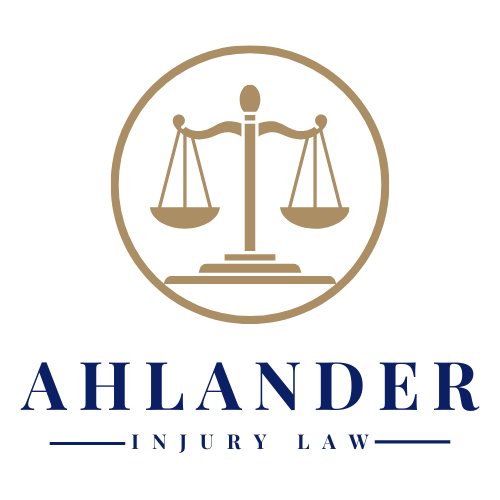Navigating Workers’ Comp for Psychological Injuries
Navigating the maze of workers' compensation for psychological injuries can be a daunting task given the complexities of mental health issues and the nuances involved in compensation laws. Psychological injuries in the workplace are increasingly recognized due to growing awareness and changing attitudes towards mental health. This shift underscores the need for affected workers to understand the types of psychological injuries they might encounter, how they impact eligibility for compensation, and the process involved in obtaining rightful benefits.
Understanding Psychological Injuries
Psychological injuries at work refer to any damage to a worker’s mental health that significantly hinders their mental capacity and emotional well-being. These injuries can stem from either a single incident or prolonged exposure to a harmful environment. Common types of psychological injuries include post-traumatic stress disorder (PTSD), depression, anxiety, and burnout.
PTSD often occurs after witnessing or experiencing a traumatic event, such as workplace violence. Depression and anxiety may result from continuous work stress, harassment, or bullying. Burnout, while not officially classified as a psychological injury in some regions, is increasingly acknowledged for its detrimental effects on employees’ mental health.
Legal Framework and Coverage
The legal framework surrounding workers' compensation for psychological injuries varies significantly between jurisdictions but generally requires the injury to be work-related. This core requirement entails proving that the conditions of employment were the predominant cause of the psychological condition, a criterion that is far more complex than establishing connections for physical injuries.
In certain regions, the law explicitly covers employees against workplace psychological harm. However, in places where such specificity is lacking, workers often face the challenge of fitting mental health claims into a system primarily designed for physical injuries. Understanding the legal nuances in one's jurisdiction is crucial and often necessitates professional advice and representation.
Challenges in Proof and Prejudices
One of the primary challenges in claiming compensation for psychological injuries is the requirement for proof. Unlike physical injuries, where tangible evidence can often be presented, psychological injuries can be subjective and reliant on the testimony of mental health professionals.
Additionally, there is still a significant stigma associated with mental health issues, which can lead to prejudices against workers filing psychological claims. Such biases can manifest in disbelief or underestimation of the severity of the psychological injury by employers and insurers, complicating the claims process.
The Claims Process
The process of filing a workers' compensation claim for a psychological injury involves several detailed steps. Initially, the worker must receive a formal diagnosis from a qualified mental health professional. This diagnosis is crucial as it forms the foundation of the claim.
Following diagnosis, the claim must be documented thoroughly, including detailed accounts of the workplace conditions, the specific incidents or the duration of exposure leading to mental health issues, and the professional assessments of the psychological impact. It's advisable to maintain a detailed log of all related incidents and interactions, as well as any correspondence related to the injury.
Subsequently, the worker needs to file a claim with the relevant workers' compensation board or insurer. This step typically involves completing specific forms and providing all necessary documentation to support the claim. It’s vital to adhere strictly to deadlines and procedural requirements to avoid any potential delays or denials based on technicalities.
Seeking Professional Assistance
Given the complexities involved in proving psychological injury and the nuances of workers' compensation laws, seeking professional legal assistance is often a wise strategy. Lawyers who specialize in workers' compensation can provide invaluable guidance through the claims process and help counteract any biases or obstacles posed by employers or insurers.
Additionally, consulting with mental health professionals who have experience in workplace issues can strengthen a claim. These experts can not only provide the necessary diagnoses and documentation but also testify to the psychological impact of the work environment, if required.
Rehabilitation and Returning to Work
Rehabilitation from psychological injuries may require both medical and therapeutic interventions, depending on the nature and severity of the injury. Employers should facilitate this process by offering necessary accommodations or modifications to the work environment.
Returning to work after a psychological injury needs careful management. The return should be gradual and flexible, allowing the affected worker to regain their capacity without undue stress. Implementing a structured return-to-work plan, in collaboration with healthcare providers and employment supervisors, ensures that the recovery process supports the employee’s mental health needs.
While navigating workers' compensation for psychological injuries may seem fraught with challenges, understanding the types of injuries, the legal prerequisites for a claim, and the detailed process involved can empower employees to advocate effectively for their rights. With the right knowledge and resources, workers can navigate the complexities of compensation claims for psychological injuries, ensuring they receive the support and benefits needed to facilitate their recovery and return to work.
As you navigate the complexities of psychological injuries in the workplace, remember, you're not alone. We are dedicated to championing your rights and ensuring you receive the compensation you deserve. Contact us today to schedule a consultation and start your journey to recovery.





